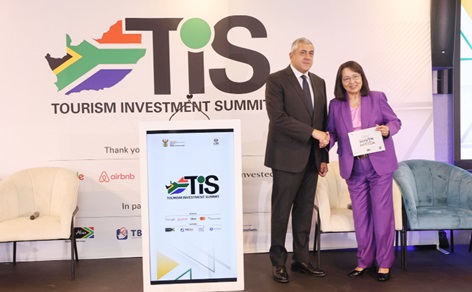Last week in Cape Town, South Africa hosted its maiden Tourism Investment Summit.
The two-day event gathered global investors, policymakers and tourism stakeholders to unlock capital for the sector.
UN Tourism Secretary-General, Zurab Pololikashvili, launched the Tourism Doing Business Guide – Investing in South Africa and called the country “one of the most attractive destinations for tourism investment.”
South Africa is backing such words with structure. The government presented eight flagship, investment-ready projects valued at nearly R1 billion, introduced reforms to attract flexible financing, and unveiled both national and regional investment road maps.
It is no surprise that the sector there already contributes over 12 per cent to national GDP, supports around 1.7 million jobs, and welcomed nearly nine million international visitors in 2024. These numbers are inspiring, but more importantly, they show what happens when strategy is matched with execution.
Steps taken
Ghana has not been idle. In May 2023, President Nana Addo Dankwa Akufo-Addo hosted the first-ever Presidential Summit on Tourism at Peduase Valley Resort, outlining a four-fold approach – preservation, promotion, policy leadership and partnership.
Just months later, the Ministry of Tourism, Arts and Culture, through its agency, the Ghana Tourism Development Company, convened a Tourism Investment Summit to mobilise capital for the sector.
These forums, built on the momentum of the Year of Return, Beyond the Return and Destination Ghana campaigns, have all raised Ghana’s tourism profile globally.
The results are visible: Ghana welcomed a post-pandemic tourism rebound of about 1.288 million international visitors in 2024, up 12 per cent from the previous year. While the figure has raised some doubts, the Ghana Tourism Authority (GTA) reported record tourism receipts of US$4.8 billion.
The tourism value chain contributes significantly (north of 5 per cent) to national employment.
These are positive numbers, but they also highlight the untapped potential of tourism as a driver of inclusive growth.
Implementation
The challenge, however, is not about organising summits or issuing communiqués.
Ghana has done that, and done it well.
The challenge is implementation. Investors and citizens alike are still waiting for transformational projects to move from paper to reality.
This is where Ghana must take inspiration from South Africa and shift decisively from talking to delivering. Investment must be targeted in well-researched and needs-assessed areas – but some priorities are already clear.
The long-promised Marine Drive Project on Accra’s coastline must finally take shape.
A world-standard convention centre is needed if Ghana is serious about tapping into the lucrative MICE market. Community tourism projects must be scaled up to spread benefits and create jobs in rural areas.
And of course, we cannot ignore the critical need for infrastructure upgrades – from access roads to Cape Coast and Elmina, to facilities around Mole National Park and Lakes Bosomtwe and Volta.
To drive this agenda, a few actions are urgent:
Institutionalise follow-up – Every summit should be followed by a published action plan and progress report. Investors and the public need to see movement on commitments, not just promises.
Provide clarity for investors – Like South Africa’s Doing Business Guide for Tourism, Ghana needs a clear, practical investor handbook outlining opportunities, incentives, land use policies, and approval processes.
Showcase real projects – Beyond general talk of potential, Ghana must present a list of “bankable projects” with feasibility studies, ROI projections, and community benefits. Investors back concrete proposals, not ideas.
Strengthen PPPs – The amended PPP framework should be tested with actual tourism projects, from heritage site redevelopment to eco-lodges and entertainment facilities.
Close the infrastructure gap – As mentioned earlier, prioritise investments in access roads, airports, utilities, and digital platforms around tourism hotspots such as Mole National Park, Lake Volta, and the Cape Coast–Elmina corridor.
Measure and report progress – Create a tourism investment tracker that is updated annually to show investors what projects are moving, which are stalled, and where opportunities lie.
Tourism investment
There is a need, in my view, for the government and its agencies to host another definitive tourism investment forum or roadshow to present global investors, policymakers and tourism stakeholders with the most needed areas for investment to unlock capital for the sector.
It is a sad reality that such fora have played their role in raising awareness and setting direction, but without much-needed results.
What is needed now is execution.
Capital is already flowing into Africa’s tourism sector, and countries that structure themselves well are attracting their fair share.
If Ghana is to truly unlock the transformative power of tourism – to grow arrivals, boost receipts, create employment and expand its footprint in the global MICE market – then it must match ambition with delivery.
The lesson from Cape Town is simple: clarity, structure and follow-through attract capital.
Ghana has the vision. Now it must show the world the action.

